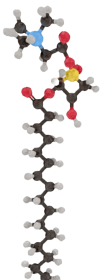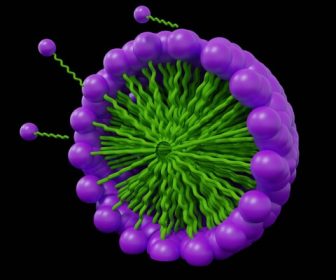
Available in other languages:
Content available at:
العربية (Arabic)
Lysolecithins improve nutrient digestibility through better emulsification and increased enzymatic potential.

High inclusion rates of fats and oils are used in broiler feeds to ensure a rapid growth that matches their genetic potential.
However, broilers are known to produce insufficient levels of bile salts and pancreatic lipase and therefore cannot optimally digest and utilize these feeds.
On top of that, these high fat feeds are costly which makes low fat feeds more attractive as they are cheaper. Yet, these feeds usually lead to lower animal performances.
| What if, through smart reformulation, the level of fats and oils can be lowered while maintaining performance? Emulsifiers based on hydrolysed lecithin, also known as lysolecithins, offer such an opportunity. |

Lysolecithins make it possible to reformulate feed by reducing energy and amino acid levels, without reducing animal performance.

Why are lysolecithins unique in their kind? Native lecithins are widely used as energy source or as emulsifier. However, the hydrophylic-lipophylic balance (HLB) of the phospholipids in these natural lecithins is rather low.

Subscribe now to the poultry technical magazine
AUTHORS

Layer Longevity Starts at Rearing
H&N Technical Team
The Strategy for a Proper Infectious Bronchitis Control
Ceva Technical Team
Elevate Hatchery Performance with Petersime’s New Data-Driven Incubation Support Service
Petersime Technical Team
Maize and Soybean Meal Demand and Supply Situation in Indian Poultry Industry
Ricky Thaper
Production of Formed Injected Smoked Chicken Ham
Leonardo Ortiz Escoto
Antimicrobial Resistance in the Poultry Food Chain and Novel Strategies of Bacterial Control
Edgar O. Oviedo-Rondón
GREG TYLER INTERVIEW
Greg Tyler
Insights from the Inaugural US-RSPE Framework Report
Elena Myhre
Newcastle Disease: Knowing the Virus Better to Make the Best Control Decisions. Part II
Eliana Icochea D’Arrigo
Avian Pathogenic E. coli (APEC): Serotypes and Virulence
Cecilia Rosario Cortés
The Importance of Staff Training on Animal Welfare Issues in Poultry Industry
M. Verónica Jiménez Grez
Rodent Control is a Key Factor in Poultry Biosecurity and Sustainability
Edgar O. Oviedo-Rondón